Resources
A 2018 course by Anthony Baker at the Seminary of the Southwest explores "the key doctrines of Christianity, from Trinity to salvation to eschatology, making use of a broad range of texts and ideas from across the historical and geographical range of the Anglican and ecumenical theological tradition."
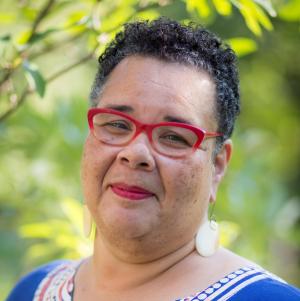
Click Here to Read Part 2 Spectacles create excitement. Experiencing the excitement of spectacle used to be reserved for such moments as the circus’s annual appearance, bringing elephants, lions and clowns. Or it happened on the rare occasion of a World’s Fair, which was considered one of the most exciting events to visit a place in a lifetime. Now, we live in a world where spectacles are available to be viewed or participated in on a daily basis. Bigger-than-life stories flood the internet. Our senses and sensitivities are bombarded through the 24-hour news cycle. Personal participation in social media keeps our imaginations revved-up and our cell phone cameras at the ready. Movies and video games have special effects so keen you think you are inside the action. Virtual reality headsets invite persons to meet up with friends from around the world at live sports, concerts, or just to watch a favorite TV show together. We can now, on a daily basis, dial-into excitement. In comparison, our classrooms, filled with lectures, discussions and the occasional field trip seem humdrum, ho-hum–just plain boring. Even our on-line courses typically replicate the patterns and learning modes of brick-and-mortar classrooms inviting adult learners into lecture and discussion in digital classrooms. We merely recreate a digital version of incarnate passivity. The change in season from winter to spring usually helps make the semester seem longer and more boring. By April in the spring semester, we are not close enough to the end of school year for a sprint to the end, and we are too far from the beginning to still be eager and anticipatory. It is a dangerous moment in the semester that could, if not tended to, derail the best course. Since there is no calendared spectacle, and since mid-semester is a low energy moment in our community, I planned something that I thought would be EXCITING. I planned something I thought would wake up, shake up, and get learning juices flowing. I invited renowned jazz musician, Victor Wooten to our campus to teach and give a concert! It is a worthwhile question to ask–“How did you get five time Grammy Award winning Victor Wooten to teach an entire day at Drew Theological Seminary, and do a concert?” Our day of teaching and conversation with Victor Wooten had everything to do with his graciousness and accessibility. Victor is a humble and kind soul. It also had everything to do with my want to make learning exciting–to create a spectacle of teaching–at least for one day. Armed with a grant from the Luce Foundation, I described my want to my colleague and friend Paul Myhre at Wabash Center. Paul is an amateur bass player and lover of jazz. I asked if he knew anyone to recommend who understands their artistry as a vehicle for social good and who would bring excitement to our community. He said the perfect artist would be jazz musician, Victor Wooten. Paul said that what distinguished Wooten, for our purposes, was his book The Music Lesson: A Spiritual Search For Growth Through Music. I was intrigued. I said, “Ok, but how would we get him? I can’t just cold-call Victor Wooten.” Paul said, “Victor is on Facebook!” Then he simply reached out to him. In less than five minutes, Victor replied to Paul and provided his manager’s name and contact information. I called Wooten’s manager and the rest is history! On March 20, Victor Wooten re-energized and re-inspirited our Drew University community. It was a spectacle of the best kind. In preparation for our day with Victor Wooten, the faculty read and assigned many courses to read The Music Lesson, published in 2006. The book is a fictional account of how Victor learned to play the bass better. While talking with our faculty at brunch, Victor said about writing the book, “I wanted to write a book that would allow me talk about my particular approach to music theory and freedom without having then to defend my approach. It took me a long time to figure out the way to write it was as fiction. Since it is fiction, people read my story, enjoy the characters and get my meaning. If they do not like the story, they do not attack my music theory because it is my story.” Several faculty persons reported to Victor how much our seminary students resonated with his book and teaching philosophy. Students, even those who know little about music, were strengthened by the liberative pedagogy and life lessons woven into the book. The first of two classes Victor taught after brunch was an undergraduate Music Theory class. He talked with the students about the meaning of the musical term “key” and explained techniques for a better, more agile understanding of keys and key changes. A student asked Victor how to avoid writer’s block. Victor told a story which illustrated that the way to overcome writer’s block is to write as many “bad” songs as you can in order to get to the “good” songs. The second class of the day was Prof. Mark Miller’s Musics of the World course. Victor delved deeply into his book, answered questions about such things as the meaning of mistake making, what it means to hear music all the time, and the spiritual journey of becoming such an accomplished musician. A highlight of the session was Victor’s conversation with Tiffani Wheatlley, a first year student who said her sons were taking drum lessons and she wanted to learn to play. Victor brought her to the drums. With a few instructions and coaching, Tiffani played along with Victor Wooten and Mark Miller–and it sounded great! It was a pleasure to watch Victor’s lessons on teaching be embodied, enacted, and demonstrated before our very eyes. The evening concert was magical. Mark Miller played the opening number on piano, then Victor–now at home in our community–joined in. Wooten continued wowing the crowd with both jazz, blues, and gospel pieces. After an hour or so of solo bass performing, Victor announced “a friend is joining me on stage.” That friend was faculty member Elias Ortega-Aponte, who accompanied Wooten on the Cajón. The next faculty person to join Wooten on stage was me! At some point in our day-long conversation, Victor asked me if I played an instrument. I have been asked this question hardly ever in my life. My answer is one that usually is unsatisfying to the asking person because I play the didjeridoo–and few people know what that is. When I responded to Victor–he of course knew what a didjeridoo was, and instructed me that I was going to play with him in the concert that night. OMG! During sound check, Victor listened to me play, announced that my didjeridoo was in the key of “D” and asked what song we should play together. I looked at Mark. He said “Wade in the Water.” Victor said–“Good, we’ll do that.” When we finished playing the piece during the concert the audience erupted! Just imagine–the very first time I play my didjeridoo in concert and it is with renowned musician Victor Wooten! The finale of the concert was an original arrangement which moshed-together the two songs “Halleluiah” and “Amazing Grace.” An improvisational genius, Victor led his band, composed of Drew musicians and the audience, to the highest heights. The piece was magnificent. The audience, rising to their feet to sing along with the moving and soulful rendition, cheered wildly at the end. The day of teaching and performing ended in typical gracious Wooten style. Victor lingered more than an hour after the concert signing books and CDs, taking pictures and talking with students, faculty, and fans. It was an historic day of joyous excitement and improvisational learning!
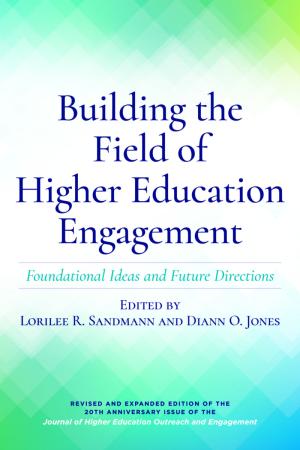
Community engagement has evolved as a respected field and now occupies a seat at the academic table. In the past, this work had often been relegated to the institutional fringes of higher education, its practitioners marginalized, and the work often portrayed as service, not scholarly. Today, higher education community engagement is a dynamic and continually evolving field of scholarship and practice that carries ever-increasing academic respect. This book contributes to the ever-under-construction edifice by presenting a scaffolding of the scholarship that has been part of the building process, documenting and analyzing the past, speculating about the future, and framing a continuing conversation about and for the field. There are three parts to this book designed to promote a continuing field-building conversation: a look back at foundational documents of the field; a set of provocative questions interrogating those foundational works; and a look to the future by the next generation of leaders in the field. The central part is the special 20th anniversary issue of the Journal of Higher Education Outreach and Engagement, which brings together key documents of the scholarship of engagement with reflections on those documents by key scholars and/or the authors of the original works. In addition to highlighting the foundations and evolution of the field, this work also looks ahead to the next generation of voices and views as input to the conversation, with a closing chapter that includes invited essays by nine outstanding community-engaged thinkers and writers of the next 20 years who share their ideas about probable futures. (From the Publisher)
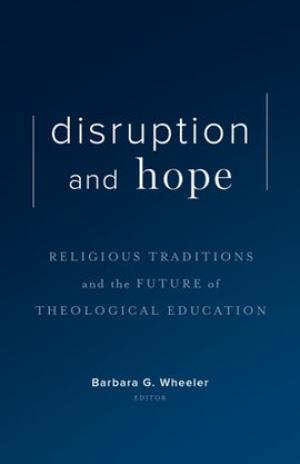
Click Here for Book Review During times of rapid social and religious change, leadership rooted in tradition and committed to the future is the foundation upon which theological schools stand. Theological education owes itself to countless predecessors who paved the way for a thriving academic culture that holds together faith and learning. Daniel O. Aleshire is one of these forerunners who devoted his career to educating future generations through institutional reforms. In honor of Aleshire’s decades of leadership over the Association of Theological Schools, the essays in this book propose methods for schools of various denominational backgrounds to restructure the form and content of their programs by resourcing their own distinctive Christian heritages. Four essayists, former seminary presidents, explore the ideas, doctrines, and ways of life in their schools’ traditions to identify the essential characteristics that will carry their institutions into the future. Additionally, two academic leaders focus on the contributions and challenges for Christian schools presented by non-Christian traditions in a rapidly pluralizing landscape. Together, these six essays offer a pattern of authentic, innovative movement for theological institutions to take toward revitalization as they face new trials and possibilities with faithfulness and hope. This volume concludes with closing words by the honoree himself, offering ways to learn from and grow through Aleshire’s legacy. (From the Publisher)
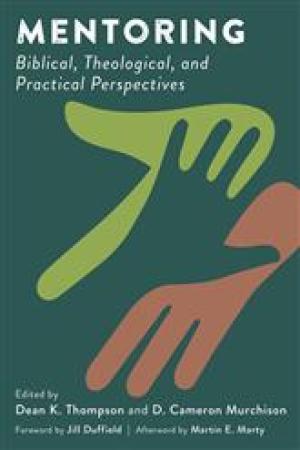
Click Here for Book Review Positive mentoring relationships are essential to the formation of strong Christian leaders. This simple truth is often held as self-evident, but why? How can theological and biblical insights inform mentoring relationships? And what do these vital relationships look like across a range of Christian experience? Opening multiple angles of vision on the practice of mentoring, Dean K. Thompson and D. Cameron Murchison have assembled an eminent group of scholars to reflect on these and other pressing questions. With contributions from twenty-one remarkable writers, this broad-ranging volume explores mentoring in biblical and theological perspective, within the context of diverse national and international communities, and across generations. (From the Publisher)

Click Here for Book Review This book presents the views of leading scholars, academics, and educators on the renewal of Islamic schools in the Western context. The book argues that as Islamic schools in Western contexts have negotiated the establishment phase they must next embrace a period of renewal. Renewal relates to a purposeful synthesis of the tradition with contemporary educational practice and greater emphasis on empirical research substantiating best practices in Islamic schools. This renewal must reflect teaching and learning practices consistent with an Islamic worldview and pedagogy. It should also inform, among other aspects, classroom management models, and relevant and contextual Islamic and Arabic studies. This book acquaints the reader with contemporary challenges and opportunities in Islamic schools in the Western context with a focus on Australia. (From the Publisher)
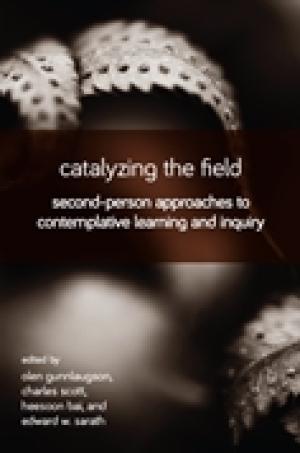
A rich collection of essays about the inner, shared experiences of participants engaged in second-person approaches to contemplative practice. Catalyzing the Field presents a diverse series of applied case studies about the second-person dimension of contemplative learning in higher education. As a companion volume to the editors’ previous book, The Intersubjective Turn, the contributors to this book explore various pedagogical scenarios in which intentional forms of practice create and guide consciousness. Their essays demonstrate that practice is not only intellectual, but somatic, phenomenological, emotional, and spiritual as well. Along with their first book, Contemplative Learning and Inquiry across Disciplines, the editors craft an essential body of work that affirms the fundamental importance of contemplative practice in institutions of higher learning. (From the Publisher)
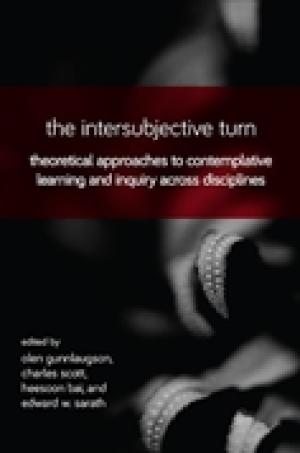
Click Here for Book Review This book examines various intersubjective approaches to contemplative learning and inquiry in higher education. It would interest contemplative studies scholars, and instructors with a previous background in contemplative pedagogy. - Beverley McGuire, University of North Carolina Wilmington A first of its kind, this book maps out current academic approaches in higher education to second-person contemplative education, which addresses contemplative experience from an intersubjective perspective. Until recently, contemplative studies has emphasized a predominantly first-person standpoint, but the expansion and embrace of second-person methods provides a distinctive learning context in which collective wisdom and shared learning can begin to emerge from dialogue among students and groups in the classroom. The contributors to this volume, leading researchers and practitioners from a variety of institutions and departments, examine the theoretical and philosophical foundations of second-person contemplative approaches to instruction, pedagogy, and curricula across various scholarly disciplines. (From the Publisher)

Teaching Religion in a Changing Public University reviews the teaching of religious studies in public universities, with exploration of the challenges and opportunities for the future. Dr. Gravett assesses the current status of the field within the challenges facing universities in general and humanities in particular as we move into the twenty-first century. She notes that: “Revolutionary changes in the higher education landscape call for sustained reflection on impact of these items on the structures in which academic work in religious studies happens and the conditions of faculty life. The advent of new educational technologies, the needs of more diverse student bodies, and alterations in the relationships between universities and communities also raise questions about how religious studies scholars and the programs they provide will evolve.” From this understanding, she provides a succinct and insightful analysis of the types of courses taught in religious studies programs and how these fare (or not) in new modalities impacted by technological change and digital learning. Dr. Gravett’s discussion of the challenges of an increasingly multicultural environment, with its religious pluralism, and the possible roles of religious studies scholars and programs, orient the reader toward present complexities and the potential of religious studies to not only survive but add increasing impact in the future. (From the Publisher)
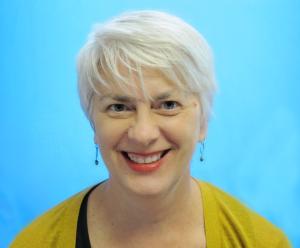
I have just experienced a new first in my teaching career: This week I had to re-design a course for a face-to-face format from an online format. I recently switched jobs. After teaching for half a dozen years in a school that exists primarily online, I am now back in a residential context, working for a school that exists primarily on a brick-and-mortar campus. I have been invited to teach a course next year, and I thought it would be a simple matter to adapt one I had offered at my previous institution. So, without hesitation, I accepted the invitation. Then, the Registrar asked me if I could teach in the school’s evening program—one class session per week for 2’45”. Two hours and forty-five minutes?! I realized with a gasp that I no longer knew what I would do with such a sustained block of time. Lengthy lectures are a thing of my distant past. When I first started teaching online, I had to work to pare my presentations down to twenty minutes. Recently, I attended a workshop where I learned that the average student attention span--before the mind starts wandering--is something like nine minutes. “Limit your presentations to twelve minutes, max,” the leader admonished us, “and even then, make them funny or catchy in some way.” Discussion, of course, can use up a lot of minutes. But there, too, I have become accustomed to disciplined time management. I developed the habit of checking in to my online course discussions daily, spending only about thirty minutes monitoring and guiding each thread; an hour, max. Online courses have so many elements to attend to that online instructors learn not to get sucked too deeply into every discussion. I forced myself to recall what I used to do in the old days of classroom teaching because I had a vague memory of class sessions flying by with never enough time before students were stuffing their books into backpacks and dashing out the door. Oh, right: Debates. Case study exercises. Role plays. Problem-solving. Guest speakers. In-class writing. All of which, I realized, I had at one point modified for the online environment. Versions of these learning activities still populated my syllabi; it was just that they happened in smaller chunks, spread throughout a week rather than concentrated in an evening. In addition to how differently time gets used in online vs. face-to-face teaching, my conversation with the Registrar also brought to mind the difference between virtual and live presence. I realized that I would once again have to muster up the energy to regularly face a room full of live bodies. Would I have to stand on my feet in front of them the whole time? Would they sit there and stare at me? I recalled the adrenaline rush that always made my palms a little sweaty before walking into class and the dissipation that left me feeling drained for several hours afterward. For six years my body had been spared all that. You don’t get particularly nervous sitting in your familiar, quiet office reading discussion posts, watching videos, and answering emails. And if for some reason you do, you can always take a break and leave for a walk or a snack or even some errands, with no one becoming the wiser. Speaking of quiet, I started recalling how noisy classrooms could sometimes become. Or, worse yet, pin-drop silent. I sighed, remembering the dual agonies of having to cajole speech out of taciturn participants and having to serve as traffic cop during swift-moving exchanges where everyone talked at once. Like all students, online students naturally vary in terms of their participation levels, but the format makes it possible to require that all of them contribute at least the same minimum to every activity. As another blogger in this series put it, “Discussion dynamics online become more democratic when each student is equally invited and expected to contribute to conversation” (Miriam Y. Perkins, “How Teaching Online Enhances Residential Pedagogies: The Big Picture,” Online Teaching, Online Learning, February 12, 2019). I am confident that come next year when I am teaching again in a traditional classroom, I will re-adapt, and eventually relish the immediacy and liveliness and spontaneity it affords. But I am also reasonably confident that I will miss the steady, measured egalitarianism of my former online world, and the kind of teaching it made possible.